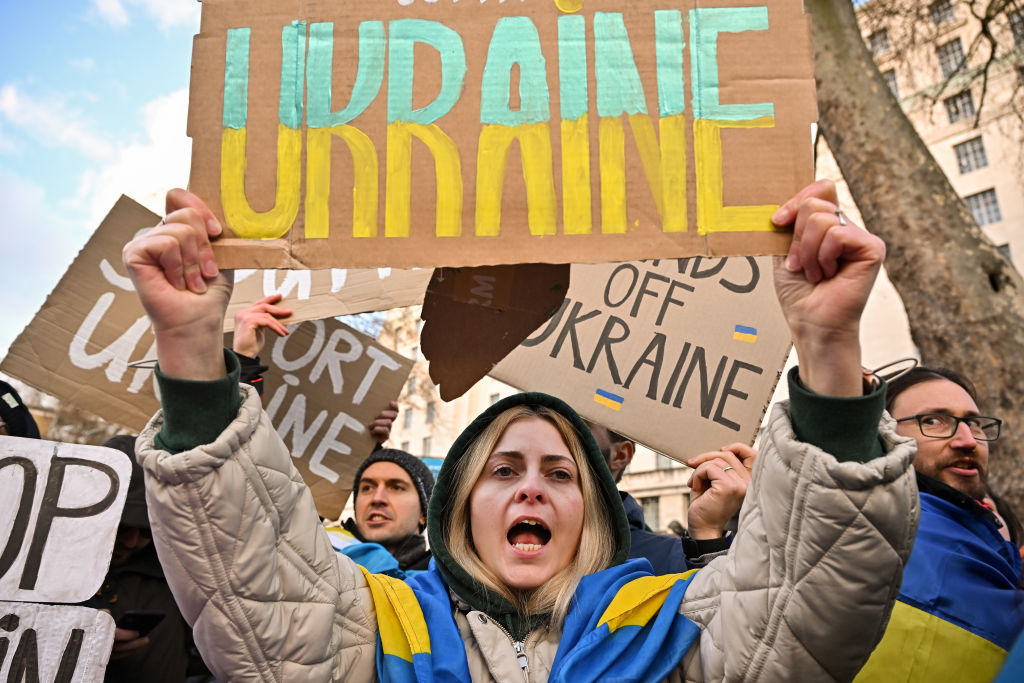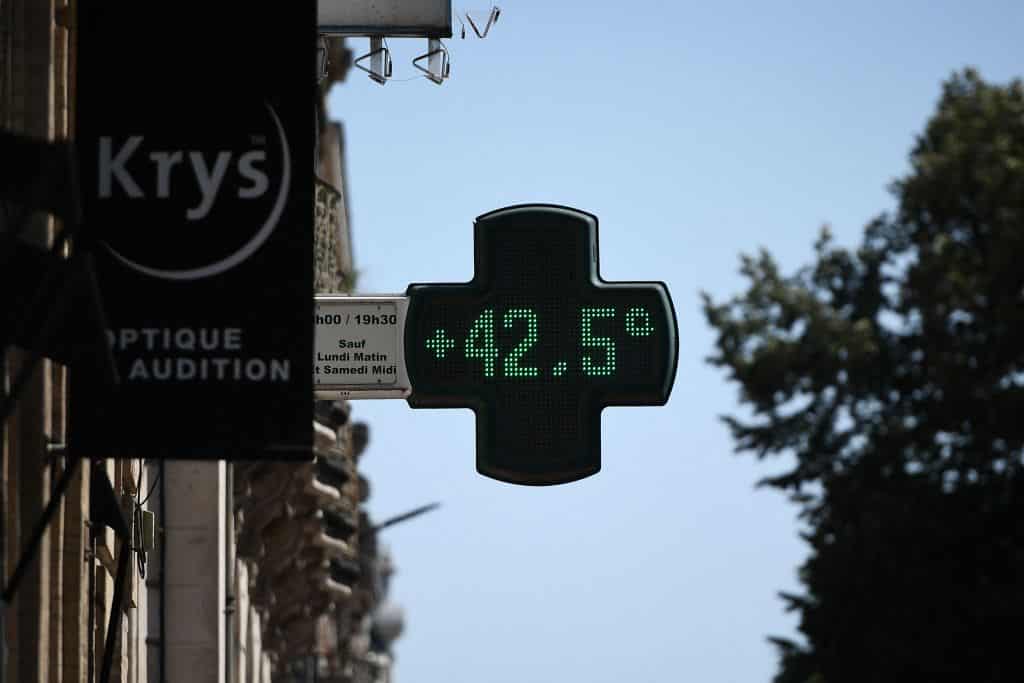Monkeypox, Tory leadership race and climate crisis: 5 essential things you need to know this week

This picture taken on July 17, 2022, shows a forest fire near Louchats in Gironde, southwestern France. (THIBAUD MORITZ/AFP via Getty)
The Tory leadership race continues to dominate headlines, with candidates arguing about trans rights, self-identification and Gender Recognition Act (GRA) reform.
Elsewhere, experts are sounding the alarm over monkeypox, the virus that has been detected in unusual numbers among gay and bisexual men, and men who have sex with men.
It might seem like there’s a lot going on in the world, but we’ve got you covered. Here are five stories you should know about this week.
1. Tory leadership hopefuls are weaponising trans rights

Penny Mordaunt, Liz Truss, Kemi Badenoch, Rishi Sunak, Tom Tugendhat. (Getty)
Tory leadership hopefuls are set to continue their fight to stay in the race over the coming week, with many likely to continue weaponising trans rights in a bid to curry favour with their voting base.
Some candidates have faced stinging criticism from LGBTQ+ campaigners for their seeming obsession with trans rights. Penny Mordaunt, a former equalities minister who was once viewed as an ally to the LGBTQ+ community, has stridently denied that she ever supported self-identification for trans people, while her opponents Liz Truss and Kemi Badenoch have accused her of lying.
Other candidates, such as Rishi Sunak, have also come under fire for their anti-trans stances.
Five candidates remain in the race, but that will be narrowed down to two before the end of the week, with Tory MPs selecting the final line-up in the leadership race.
2. Monkeypox continues to cause alarm

A section of skin tissue, harvested from a lesion on the skin of a monkeypox patient, under a microscope. (Smith Collection/ Gado/ Getty)
The spread of monkeypox, particularly among gay and bisexual men, is continuing to cause alarm among health officials.
There have now been at least 1,856 confirmed cases of the virus in the UK. The vast majority of those are in England and gay and bisexual men are among the worst affected.
The UK Health Security Agency (UKHSA) is now urging anybody who has recovered from the virus to use condoms during sex for 12 weeks after infection after a study found the virus’ DNA can be found in bodily fluids.
It is still not clear if monkeypox can be sexually transmitted – it’s thought that it’s spread through close skin-to-skin contact – but the UKHSA is erring on the side of caution.
3. EU considers further sanctions on Russia over Ukraine war

Ukrainians demonstrate outside Downing Street against the recent invasion of Ukraine on February 24, 2022 in London, England. (Jeff J Mitchell/Getty)
The EU is expected to issue further sanctions on Russia as the war in Ukraine continues, with a ban on the purchase of gold on the top of the agenda.
EU foreign ministers will meet in Brussels on Monday (18 July) to discuss further sanctions, with European Commission president Ursula von der Leyen saying Moscow must pay “a high price for its aggression”.
4. European Commission takes legal action over Hungary’s LGBTQ+ propaganda law

Hungarian prime minister Viktor Orbán and members of the Fidesz party celebrate their re-election. (ATTILA KISBENEDEK/AFP via Getty Images)
The European Commission announced on Friday (15 July) that it has decided to “refer Hungary to the Court of Justice of the EU” over a law which bans discussion of LGBTQ+ people in schools and in the media.
Hungary passed the law in June 2021, facing international outcry in the process – but that didn’t deter prime minister Viktor Orbán and his right-wing party Fidesz.
Announcing its decision to take legal action, the European Commission said Hungary’s law “singles out and targets content that ‘promotes or portrays’ what it refers to as ‘divergence from self-identity corresponding to sex at birth, sex change or homosexuality’ for individuals under 18.”
5. Record temperatures expected across the UK

This photograph taken in Toulouse, southern France, on July 17, 2022 shows a pharmacy sign displaying the temperature of 42,5°C. (VALENTINE CHAPUIS/AFP via Getty)
The UK is expected to have its hottest day on record on Monday (18 July), with forecasters warning some parts of the country could hit 41C.
The Met Office has put a red heat warning in place on Monday and Tuesday for large swathes of England, while other parts of England – alongside Wales and Scotland – are under an amber warning.
The temperatures are expected to be so extreme that it’s being treated as a “national emergency” by the UK government.
The latest heatwave comes as climate change activists continue to sound the alarm about rising temperatures. According to the Intergovernmental Panel on Climate Change (IPCC), we are now living in the hottest era for more than 125,000 years.
